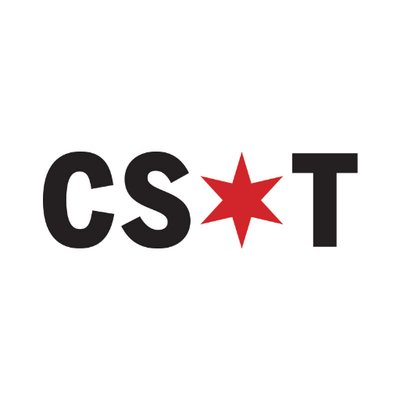



Federal prosecutors told jurors Wednesday they would hear more than 100 recordings over the next several weeks, as the wide-ranging case against four allies of former Illinois House Speaker Michael Madigan kicked off in earnest with opening statements.
Speaking for roughly 90 minutes to a newly empaneled federal jury, Assistant U.S. Attorney Sarah Streicker made several disclosures about the investigation that roiled state politics, ended Madigan’s political career and landed him under indictment for racketeering.
She described former Cook County Recorder of Deeds Edward Moody as a cooperating government witness who has “not been charged with a crime in exchange for his truthful testimony.”
She placed former state Rep. Eddie Acevedo squarely in the middle of the scheme as a Madigan ally allegedly paid by ComEd through a third party.
And the prosecutor detailed a stream of benefits paid by ComEd to four additional Madigan allies — former Alds. Frank Olivo and Michael Zalewski, Raymond Nice and Moody. She said Olivo was paid more than $360,000, Zalewski was paid $45,000, Nice was paid more than $400,000 and Moody was paid more than $350,000 while allegedly doing little or no work.
Though the men appeared to be paid as third-party subcontractors, Streicker said prosecutors would show their payments amounted to a clear effort to sway Madigan as legislation critical to ComEd moved through Springfield.
The legislation included a 2011 measure that stabilized ComEd’s formula rate, a 2013 measure that was considered a legislative fix to the rate bill and the Future Energy Jobs Act, which passed in 2016.
“These were not mere requests,” Streicker said. “They were not mere recommendations that were treated like recommendations from any other public official. The evidence will prove that these were demands, and the defendants acted on them.”
Streicker’s comments kicked off the trial, more than two years in the making, of Madigan confidant Michael McClain, ex-ComEd CEO Anne Pramaggiore, former ComEd lobbyist John Hooker and onetime City Club President Jay Doherty.

Former ComEd CEO Anne Pramaggiore walks into the Dirksen Federal Courthouse Wednesday.
Ashlee Rezin/Sun-Times
A federal grand jury indicted the four in November 2020, accusing them of a scheme to arrange jobs, contracts and money for Madigan’s associates. McClain, Pramaggiore, Hooker and Doherty are charged with a bribery conspiracy and falsifying ComEd’s books and records.
Madigan is charged with the same scheme, but in a separate broader indictment. His trial is not expected to begin until April 2024.
Nice, Zalewski and Olivo have not been criminally charged. Acevedo pleaded guilty to a separate tax evasion charge and served a six-month prison sentence. He was also previously tied to the Madigan investigation through a similar scheme involving AT&T Illinois.
U.S. District Judge Harry Leinenweber called a lunch break following Streicker’s comments. Defense attorneys are expected to spend three hours making their own opening statements to the jury of six men and six women when the trial continues in the afternoon.

Former ComEd lobbyist John Hooker walks into the Dirksen Federal Courthouse Wednesday.
Ashlee Rezin/Sun-Times
Once the commentary is concluded, federal prosecutors will begin calling the first of many witnesses. They signaled Wednesday they would begin with current and former members of the Illinois General Assembly who could describe “how powerful Mike Madigan was.”
Streicker illustrated her presentation Wednesday by flashing photos of the Illinois Capitol building and Madigan on a screen in the courtroom. She showed Madigan’s picture as she made clear the extent of his political power to the jury.
In fact, beside Madigan’s picture on the screen — which appeared to be a driver’s license photo — were the words “most powerful person in IL General Assembly.”
Streicker began her opening statements with McClain’s own words, captured on one of the many secret government recordings: “We had to hire these guys because Mike Madigan came to us.”
“In short, Madigan wanted, the defendants gave, and the defendants got,” Streicker told the jury. “It’s that simple.”
Streicker described McClain’s close relationship with Madigan to jurors, and how he purported to speak for the reclusive political leader. She said that McClain asserted as much when speaking once to a senior ComEd employee.
“He told this employee that ComEd must immediately handle requests from Madigan, and that ComEd must understand that, when McClain sends over a resume, it’s not a request. It’s a demand to hire someone.”
Secret recordings of such conversations are crucial to the prosecutors’ case. So will be the testimony of government cooperators like Moody and former ComEd executive Fidel Marquez, who pleaded guilty to a bribery conspiracy in September 2020.
Streicker divided the jobs and contracts secured by the defendants into four categories: subcontractors, law firm contracts, a ComEd board seat and even an intern program. She said they all included political allies of Madigan who weren’t expected to do “any real work in exchange for payment.”
The ComEd intern program set aside 10 seats for 13th Ward applicants, with Streicker noting “no other ward got that treatment.” She said certain requirements, including a minimum GPA, were broken for the 13th Ward applicants.
In emails from McClain to Marquez, McClain pushed for ComEd to hire people selected by the 13th Ward for the internships.
Streicker called it “another way to bribe Mike Madigan to influence and reward his actions towards the company in Springfield.”

Former City Club President Jay Doherty walks into the Dirksen Federal Courthouse Wednesday.
Ashlee Rezin/Sun-Times
